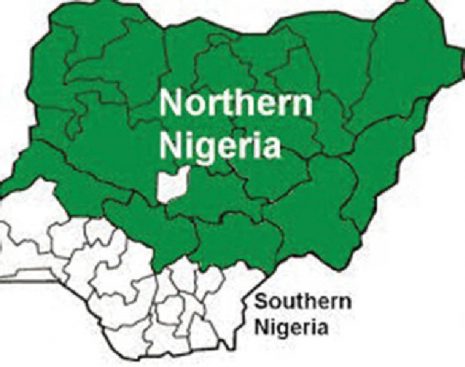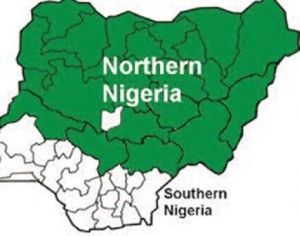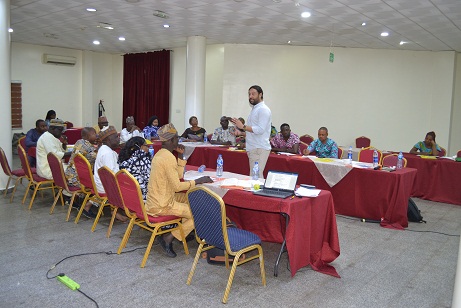
On Saturday, 3rd of August, Nigeria Institute of Public Relations, (NIPR) Kaduna Chapter organized its Annual Public Lecture/General Meeting in Kaduna at Sir Ahmadu Bello Memorial Foundation. The Conference featured a robust discussion on the “Revival of Industries in the North: The Textile example” The lead speaker was Alhaji Detijo Adhama, Executive Director of Adhama Textiles and Garment, Kano and a passionate textiles revivalist within the Nigeria Textile Employers Association ( NTMA). NIPR Kaduna Chapter initiative assumed a special significance for all the stakeholders in Northern Nigeria development agenda.
For one, in recent times, it represented a paradigm focus from the poverty/corruption discourse which had characterized the development discourse in the region and indeed the country as a whole. Many conferences with resolutions of despair are gathering dust in Northern achieve. It was a good news that NIPR conference focused on what’s to be done; beneficiation, value addition, wealth generation, manufacturing and revival of industries as opposed to poverty and poverty alleviation measures. Professor Chukwuma C. Soludo was the 9th Governor of the CBN. It would be recalled that in 2009, he promoted the controversial thesis according to which Poverty was a Northerner, with data that showed that poverty and acute deprivations were widespread in the North perhaps more than the other regions (where poverty exists nonetheless).
Many have joined league of agonizing including notable northern policy makers. 10 years after, it is certainly refreshing to hear that the 11th Governor of CBN, Mr Godwin Emefiele is committed to reviving once upon a productive region (and indeed national economy!), promoting value addition, productive optimism in place of lamentation through targeted development financing and smart macro economics. President Buhari was once again commended for initiating the Executive Order 003 on Support of Local Content in Procurement. It was also acknowledged that CBN under the leadership of Godwin Emefiele initiated a number of bold and commendable measures to encourage patronage of local fabrics towards driving the economic policies of your Excellency.
Alhaji Detijo Adhama recalled with hope series of engagement, CBN initiated in signing an unprecedented MOU between the Service Chiefs, Chief Executives of Uniformed Services, and textile/ garment manufacturers on enforcement of Executive Order 003 on Support of Local Content in Procurement By MDAs. With this MOU, uniforms for navy, police, army, NYSC, theatre wears in hospitals and medical facilities are to be sourced locally from the Nigerian CTG sector in pursuance of the current administration’s drive towards economic diversification and creating jobs for our teeming population. No administration has shown such bold commitment to local patronage. Stakeholders recalled the speech of President Buhari when leadership of Textile union paid him a courtesy call showing commitment to industry revival. The state governors were called upon to emulate the pro-value addition posture of the President, use state budgets to patronize local fabrics, revive local industries, create mass jobs and get youths gainfully employed, get them out of criminality and insurgency indoctrination. On May 6th, 2019 under the Anchor Borrowers’ Programme, CBN flagged-off the 2019 Wet Season Cotton Input Distribution to 150,000 farmers in Katsina, Katsina State. As many as 180,000 hectares of cotton would be cultivated to feed local ginneries to be used in the production of high quality textile for use by the armed forces and other uniformed service organizations. Today, unprecedented massive cotton production is ongoing in across 23 States of Nigeria with the provision of high yielding varieties that will produce top quality fabrics that can compete in the international market. This measure captured the imagination of participants. They urged the new Ministerial designates, and the fiscal authorities to compliment the commendable efforts of the CBN monetary and development financing measures. The major problems identified remained that of Smuggling and counterfeiting of textile products. CBN, was hailed for denying importers smugglers scarce foreign exchange. The Customs service was called upon to complement CBN’s efforts through vigilance and raids of smuggled goods stores. Indeed a presidential task-force be set up made up of Ministry of Industry, Trade and Investment (MITI), Budget Office of the Federation (BOF), Nigeria Customs Service (NCS), Standard Organization of Nigeria (SON), Textile Workers Union and Manufactures Association of Nigeria (MAN) with the power to confiscate goods smuggled into the country and burn them The passionate presentation of Alhaji Detijo Adhama drawing on memory and rich historic of productive North is a compulsory read for the governors of the North as well as the media. The late Premier Ahmadu Bello did not sit by listening to empty sermons about poverty in the region before he moved into actions of historic significance to insist that the North must catch up in words and actions. The strength of the late Sardauna lies in the fact that he operated outside poverty box and mainstreamed prosperity awareness at a time it was a luxury to do so. The question today is: if the old region with its less endowment compared to now, could engage in value addition and mass industrialization, of course 2019 North has no excuse to preside over industrial obituaries with factory closures, mass unemployment and poverty. The North does not have to look for “foreign” investors when all it needs is to revive the existing initial plants and assets being wasted. This must start with commitment to the new Cotton, Textile and Garment (CTG) policy. If Sardauna in the 50s could engage the British to build KTL in partnership and ensure the Chinese and Japanese relocated to build UNTL the largest textile mill in the continent and Arewa textile which mentored the likes of Alhaji Detijo Adhama, the 19 governorrs have no excuse to preside over the collapse of this massive investment if they cannot add to it. We need a programmatic mix of public and private sector policies to reposition the region and indeed the country! Prosperity not poverty should be a Northerner, Nigerian and indeed an African.
By Issa Aremu, mni | Published Date






